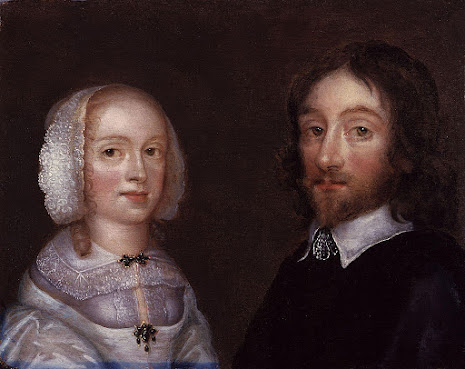Bruce Charlton has written a post: "The lineage of Romantic Christianity in England (a sort-of manifesto: a testimony)" which examines the development of Charlton's idea of Romantic Christianity through time, starting with William Blake. Thomas Browne (1605 - 1682), a physician and writer is another figure who fits into this lineage.
His most famous book Religio Medici (in English, "The Religion of a Doctor") is a discursive exploration of religion and discusses many matters. Browne was a faithful member of the Church of England, but his faith had a strong individual component. This was not mere eccentricity or idle speculation, but something that flows from the desire to understand. I will let the man speak for himself about this:
"But, to difference myself nearer, and draw into a lesser circle; there is no church whose every part so squares unto my conscience, whose articles, constitutions, and customs, seem so consonant unto reason, and, as it were, framed to my particular devotion, as this whereof I hold my belief—the Church of England; to whose faith I am a sworn subject, and therefore, in a double obligation, subscribe unto her articles, and endeavour to observe her constitutions: whatsoever is beyond, as points indifferent, I observe, according to the rules of my private reason, or the humour and fashion of my devotion; neither believing this because Luther affirmed it, nor disproving that because Calvin hath disavouched it. I condemn not all things in the council of Trent, nor approve all in the synod of Dort. In brief, where the Scripture is silent, the church is my text; where that speaks, ’tis but my comment; where there is a joint silence of both, I borrow not the rules of my religion from Rome or Geneva, but from the dictates of my own reason."
and
"’Tis true, that men of singular parts and humours have not been free from singular opinions and conceits in all ages; retaining something, not only beside the opinion of his own church, or any other, but also any particular author; which, notwithstanding, a sober judgment may do without offence or heresy; for there is yet, after all the decrees of councils, and the niceties of the schools, many things, untouched, unimagined, wherein the liberty of an honest reason may play and expatiate with security, and far without the circle of a heresy."
I find Thomas Browne to be a very sympathetic figure. Like the other true Romantic Christians, he did not speculate about religious matters to undermine faith. Indeed, one of his books, Christian Morality was written specifically for the education of his children. He wanted them to learn to be moral. Browne writes in this book:
"Live by old Ethicks and the classical Rules of Honesty. Put no new names
or notions upon Authentick Virtues and Vices. Think not that Morality is
Ambulatory; that Vices in one age are not Vices in another; or that
Virtues, which are under the everlasting Seal of right Reason, may be
Stamped by Opinion. And therefore though vicious times invert the
opinions of things, and set up a new Ethicks against Virtue, yet hold
thou unto old Morality; and rather than follow a multitude to do evil,
stand like Pompey’s pillar conspicuous by thyself, and single in
Integrity. And since the worst of times afford imitable Examples of
Virtue; since no Deluge of Vice is like to be so general but more than
eight will escape; Eye well those Heroes who have held their Heads above
Water, who have touched Pitch, and not been defiled, and in the common
Contagion have remained uncorrupted."
Many who write about Thomas Browne talk about his style and although Browne writes in an idiosyncratic fashion, I do not believe it is a "style" in the sense of a self-consciously adopted accoutrement to his writing. Rather, Browne is guiding you through his thinking. I find Browne's style easier to read than many modern biographies which are so jam-packed with details it is difficult to know which to focus on. By contrast, Thomas Browne helps the reader think with him.
Here is a picture of Thomas Browne and his wife, Dorothy Browne:


I too find Browne a congenial spirit - although I cannot read him in quantity. I dip in.
ReplyDeleteProto-romantic? Well, nothing comes from nowhere, so there is always some kind of transition. But I find the spirit of Browne to be very different from that of the romantics. He is so measured and moderate - a bit more like a renaissance humanist type, or Montaigne.
I find him more like the end of an era (late, late medieval) than the beginning of a new.
That is a good point about how Browne was not a Romantic. I was looking for a term that showed Browne was intermediate between Christians whose religion was strongly in terms of obedience and those whose Christianity was primarily based on individual discernment.
ReplyDelete